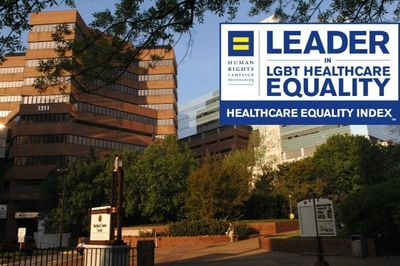HRC names Vanderbilt University Medical Center a leader in healthcare equality
The Human Rights Campaign Foundation has identified Vanderbilt University Medical Center as a “Leader” in LGBT healthcare equality.
The HRC’s Healthcare Equality Index (HEI), according to its website, “is a national LGBTQ benchmarking tool that evaluates healthcare facilities’ policies and practices related to the equity and inclusion of their LGBTQ patients, visitors and employees.”
This is the sixth year in a row that Vanderbilt received the designation. It is one of three organizations in Tennessee to be recognized.
“This acknowledgement by the HRC shows our commitment to welcoming and serving LGBTQI people,” said Del Zimmerman, manager for the Vanderbilt Program for LGBTQI Health.
“Vanderbilt has continued to demonstrate a strong commitment toward LGBTQI health equity. We are able to connect patients with culturally competent health care professionals as well as provide continuing education to our staff about unique health care needs of the LGBTQI community.”
Vanderbilt is among the first academic medical centers to both achieve HEI Leadership designation and form an office dedicated to LGBTQI health and equality.
The scoring criteria for the recognition was updated for the 2017 equality index. Under the new system, a facility needs to receive a score of 100 points to be designated as a “Leader in LGBTQ Healthcare Equality.” This year 303 of the 590 HEI 2017 survey respondents (51%) scored 100 in the new criteria of the HEI 2017 and acheived the status of "2017 Leader in LGBTQ Healthcare Equality." Another 144 facilities earned the “Top Performer” designation for scoring 80 to 95 points, including the VA Tennessee Valley Healthcare System.
See the interactive map, which highlights local participating facilities.
Facilities received points for meeting specific requirements and by having a certain number of best practices and policies in place. Four new core objectives were added for HEI 2017:
• Ensure foundational protection for patients, visitors and staff in patient and staff policies and provide cultural competency training on LGBTQ inclusion
• Demonstrate progress toward inclusion on LGBTQ patient care and support
• Cultivate an inclusive workforce by providing LGBTQ-inclusive employee support and benefits
• Demonstrate public commitment to the LGBTQ community
